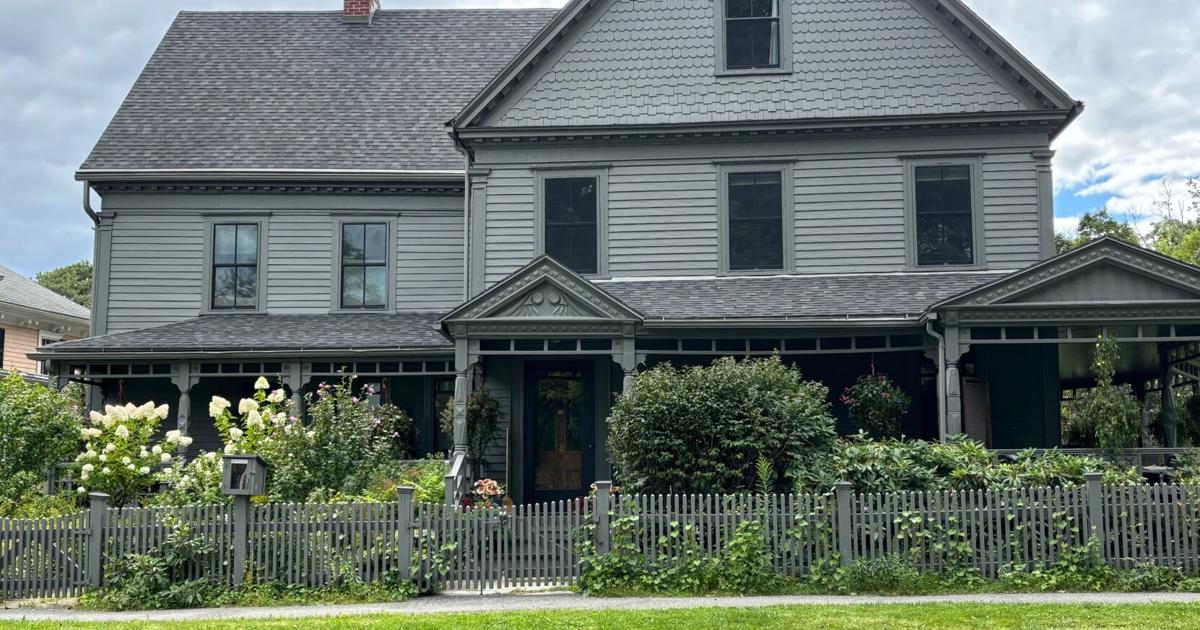By By Clarence Fanto,The Berkshire Eagle
Copyright berkshireeagle

LENOX — Bewilderment, confusion and plenty of anger surfaced at a recent informational session for short-term rental hosts led by town officials.
At least 40 people attended the Town Hall session, firing pointed questions at Land Use Director and Town Planner Eammon Coughlin and Matthew Kollmer, the shared-services building commissioner and inspector for Lenox, Lee, Stockbridge and Great Barrington.
The state’s new building code requirement requiring sprinkler systems on most short-term rental properties drew the greatest outcry. Lenox has at least 170 short-term rental units, according to state data, but only 77 are registered with the town.
Coughlin noted that the town had no role in adopting that requirement — it’s in effect statewide. Most short-term rentals use Airbnb, Vrbo or other online platforms to match guests with rental hosts.
The 10th edition of the state’s building code, which took effect on July 1, also requires annual inspections of non-owner-occupied short-term rental properties, but only once every five years if the owner lives on the premises, Kollmer said.
He emphasized his willingness to work with each individual property host and indicated “there may be a little leeway in terms of what owner-occupied actually means.”
In an effort to sort out confusion, Kollmer reported that he consulted with the state’s chief building inspector.
The bottom line, he said, is the sprinkler requirement applies to rental properties of five guest rooms or fewer — any room available to a renter such as a parlor or dining room, except for bathrooms.
According to a provision of the state’s general laws, sprinklers also must be installed on properties renting short-term (one month or less) to six people or more.
However, that rule only would go into effect in five years, and only in towns that opted in to the state law provision. Apparently, Lenox did not, adding another source of confusion to the discussion.
But the updated state building code seems to settle the matter, since it would apply to nearly all short-term rental properties statewide.
“It’s a lot more intrusive than it used to be,” Kollmer said. “There’s a lot of angry people here. I actually sympathize with them but I just don’t have the jurisdiction to say, ‘You can get out of it, don’t worry about it.’ ”
He also explained that the state considers short-term rentals a commercial use rather than a residential use, thanks to a previous state court ruling.
Kollmer also noted that if it can be proved that a building was being used as a short-term rental prior to Oct. 15, 2017, it is exempted from the sprinkler requirement.
Numerous property hosts attending the informational session posed questions seeking answers on whether the rules did or did not apply to them.
One frustrated property owner suggested that “this is a very dynamic topic relating to the structures we all own and it would be helpful if the town of Lenox would give us a checklist.”
BYLAW PROPOSAL
As for the proposed general bylaw applying to short-term rentals, the town is enhancing its online system to monitor rental registrations and inspections as a transition to annual registration requirements instead of the one-time signup now in effect.
A proposed “quiet hours” requirement to curb “party-house” noise from 8 p.m. to 8 a.m. met with blowback from several property owners. The town does not have a general noise ordinance other than for construction. Police respond to occasional complaints that rise to the level of “disturbing the peace,” Coughlin noted.
Several residents complained that any noise restrictions should apply to all homeowners, not only to those in the short-term rental business.
Coughlin indicated he’s open to adjusting the onset of “quiet hours” to 10 p.m.
The town is also seeking installation of fire extinguishers at all short-term rental properties.
The most controversial proposal, Coughlin acknowledged, is a requirement for a monitored fire alarm system at properties where the owner is not present. Installation of such systems may cost at least $2,000 plus annual fees of several hundred dollars.
The local bylaw proposal may be revised before the Select Board’s official public hearing on the proposal on Oct. 8. Voters will have the final say at the Nov. 6 special town meeting.



